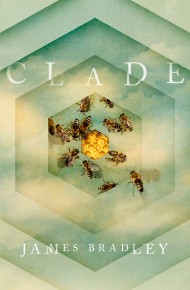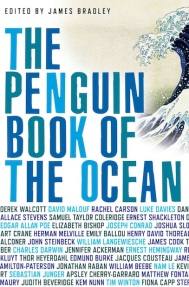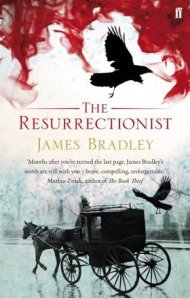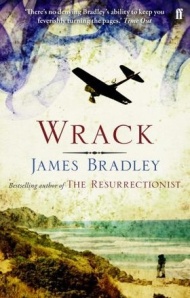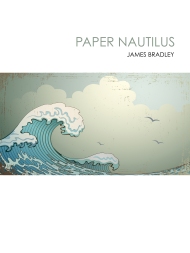Best Books 2018
 As promised the other day, I thought I’d do a quick roundup of some of the books I enjoyed most this year. Right at the top of my list are two books I loved quite immoderately, Richard Powers’ The Overstory and Michael Ondaatje’s Warlight. The former is just astonishing – a seamless synthesis of science and fiction that manages to make the ecological crisis surrounding us viscerally real – the latter is a book that ranks with Ondaatje’s best work.
As promised the other day, I thought I’d do a quick roundup of some of the books I enjoyed most this year. Right at the top of my list are two books I loved quite immoderately, Richard Powers’ The Overstory and Michael Ondaatje’s Warlight. The former is just astonishing – a seamless synthesis of science and fiction that manages to make the ecological crisis surrounding us viscerally real – the latter is a book that ranks with Ondaatje’s best work.
I also loved a number of other novels, in particular the final volume in Rachel Cusk’s astonishing Outline Trilogy, Kudos, Miriam Toews’ Women Talking, Tommy Orange’s There There, Leila Slimani’s brutal portrait of class and isolation, Lullaby, Lisa Halliday’s brilliant Asymmetry, Julian Barnes’ marvellously controlled dissection of love and the things we cannot let ourselves know, The Only Story, Patrick DeWitt’s French Exit, Daisy Johnson’s Everything Under, Leni Zumas’ Red Clocks, Ottessa Moshfegh’s reworking of the 9/11 novel, My Year of Rest and Relaxation, Rachel Kushner’s The Mars Room, Tana French’s consuming The Witch Elm, Ling Ma’s Severance, Anna Burns’ Man Booker-winning Milkman and Robin Robertson’s noir verse novel, The Long Take. Alongside the novels there were a number of story collections I very much enjoyed, perhaps most notably Denis Johnson and William Trevor’s posthumous volumes, The Largesse of the Sea Maiden and Last Stories, Lauren Groff’s Florida, Jon McGregor’s companion to Reservoir 13, The Reservoir Tapes, Ben Marcus’ Notes from the Fog, and Nana Kwame Adjei-Brenyah’s Friday Black. And although it wasn’t published in 2018, I also loved Andrew Sean Greer’s delightful Less (which took me back to his sad but beautiful 2008 novel, The Story of a Marriage).
 A number of the Australian books I read this year were from last year as well; I particularly admired Michelle de Kretser’s The Life to Come, Ryan O’Neill’s Their Brilliant Careers and Jennifer Down’s wonderful story collection, Pulse Points. Of those published in 2018 I loved Jock Serong’s historical thriller, Preservation, Jennifer Mill’s marvellous Dyschronia and Mark Smith’s sequel to his standout YA debut, The Road to Winter, Wilder Country.
A number of the Australian books I read this year were from last year as well; I particularly admired Michelle de Kretser’s The Life to Come, Ryan O’Neill’s Their Brilliant Careers and Jennifer Down’s wonderful story collection, Pulse Points. Of those published in 2018 I loved Jock Serong’s historical thriller, Preservation, Jennifer Mill’s marvellous Dyschronia and Mark Smith’s sequel to his standout YA debut, The Road to Winter, Wilder Country.
Of the science fiction and fantasy I read I adored Adam Roberts’ wildly brilliant sequel to last year’s The Real Town Murders, By the Pricking of her Thumb, the conclusion to Dave Hutchinson’s Fractured Europe Quartet, Europe at Dawn, Tade Thompson’s terrific Rosewater, James Smythe’s I Still Dream, Martha Wells’ Murderbot series, John Schoffstall’s extremely engaging YA fantasy, Half-Witch, Emma Newman’s Before Mars, Kim Stanley Robinson’s Red Moon, Christopher Priest’s queasily powerful An American Story, Ahmed Saadawi’s Frankenstein in Baghdad, and Audrey Schulman’s Theory of Bastards. And although it was published last year, Nick Harkaway’s Gnomon is an astonishing book: dense and furious and ferociously engaged with the contemporary world.
Most of the comics I read were in series format, but I’ve been loving Al Ewing’s joyously creepy 1950s horror comics-inflected The Immortal Hulk, and I hugely admired Nick Drasno’s Man Booker-longlisted Sabrina.
 And finally, my non-fiction reading was a bit spotty, but a lot of what I did read was terrific, and of that, the absolute highlights were Caspar Henderson’s prismatic A New Map of Wonders, Joy McCann’s wonderfully rich and expansive history of the Southern Ocean, Wild Sea, Nancy Campbell’s The Library of Ice, Phillipa McGuinness’ 2001: The Year That Changed Everything, and two books about sea level rise, Elizabeth Rush’s beautiful Rising and Jeff Goodell’s deeply confronting The Water Will Come.
And finally, my non-fiction reading was a bit spotty, but a lot of what I did read was terrific, and of that, the absolute highlights were Caspar Henderson’s prismatic A New Map of Wonders, Joy McCann’s wonderfully rich and expansive history of the Southern Ocean, Wild Sea, Nancy Campbell’s The Library of Ice, Phillipa McGuinness’ 2001: The Year That Changed Everything, and two books about sea level rise, Elizabeth Rush’s beautiful Rising and Jeff Goodell’s deeply confronting The Water Will Come.
Obviously there’s still a couple of weeks of the year to go (a chunk of which I’ll be spending on Knausgaard’s mammoth The End), and I’m sure there are things I’ve forgotten, but hopefully not too many. In the meantime I wish all of you the very best for the holiday season and the year ahead. Go well.

 Because it’s Christmas Eve and I’m sure everybody’s mind is focussed on matters literary I thought I’d take a moment to pull together a list of some of the books I’ve most enjoyed over the past twelve months. As usual I’ve already made a start in my contributions to the
Because it’s Christmas Eve and I’m sure everybody’s mind is focussed on matters literary I thought I’d take a moment to pull together a list of some of the books I’ve most enjoyed over the past twelve months. As usual I’ve already made a start in my contributions to the Meg Wolitzer’s The Interestings is another book that seems to have found a while to attract the attention it deserves, so it’s pleasing to see it turning up on a number of best of the year lists. Warm, capacious and very smart about the nature of friendship and the way age and success alters the dynamics of relationships, it’s also one of the most consistently enjoyable things I’ve read this year. And while I suspect it slipped under a lot of people’s radar, I loved Yoko Ogawa’s splendidly sinister matryoshka doll of a collection, Revenge.
Meg Wolitzer’s The Interestings is another book that seems to have found a while to attract the attention it deserves, so it’s pleasing to see it turning up on a number of best of the year lists. Warm, capacious and very smart about the nature of friendship and the way age and success alters the dynamics of relationships, it’s also one of the most consistently enjoyable things I’ve read this year. And while I suspect it slipped under a lot of people’s radar, I loved Yoko Ogawa’s splendidly sinister matryoshka doll of a collection, Revenge. I have to confess I didn’t read as much Australian fiction as I should have this year, but of the things I did read a couple of books really stood out. One was Tim Winton’s Eyrie, a book that in its portrait of the contradictions underlying the West Australian boom was more explicitly engaged with contemporary Australia than a lot of Winton’s fiction, but the real standout was Richard Flanagan’s The Narrow Road to the Deep North. Flanagan seems to have spent most of his career looking for a way to marry his family history to the national narrative; in The Narrow Road to the Deep North he’s done just that, with remarkable results.
I have to confess I didn’t read as much Australian fiction as I should have this year, but of the things I did read a couple of books really stood out. One was Tim Winton’s Eyrie, a book that in its portrait of the contradictions underlying the West Australian boom was more explicitly engaged with contemporary Australia than a lot of Winton’s fiction, but the real standout was Richard Flanagan’s The Narrow Road to the Deep North. Flanagan seems to have spent most of his career looking for a way to marry his family history to the national narrative; in The Narrow Road to the Deep North he’s done just that, with remarkable results.


